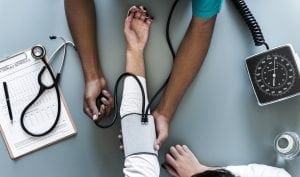The American Society for Clinical Oncology (ASCO) held its Annual Meeting in late May and early June to discuss clinical guidelines, best practices, and research advancements within the oncology space. Abstract LBA4 focused on results from the Phase 3 SWOG S1826 study. This study explored whether nivolumab (Opdivo) or brentuximab vedotin (Adcetris) improved survival rates of stage III or IV Hodgkin lymphoma when added to the current standards-of-care.
In an article in MedPage Today, writer Ed Susman notes that the trial sought to standardize and harmonize treatment across both pediatric and adult populations. Participants first received six cycles of chemotherapy (doxorubicin, vinblastine, dacarbazine) before being treated with either Opdivo or Adcetris.
After one year, 94% of those receiving Opdivo were still living. Their cancer had not progressed. Comparatively, 84% of those receiving Adcetris saw the same results. Opdivo plus chemotherapy showed significant efficacy in adults with late-stage Hodgkin lymphoma. However, the results were not statistically significant for pediatric populations.
While people taking Opdivo were more likely to have neutropenia (low neutrophil levels), they had lower levels of bone pain, neuropathy (nerve damage and dysfunction). 2x more people discontinued Adcetris treatment than Opdivo. While deaths occurred in both groups, death rates were higher in those receiving Adcetris.
Doctors do caution that more research is needed, both to evaluate the long-term effects and sustained impact, and to determine whether this therapeutic combination would confer any benefits to children and adolescents with this cancer.
About Hodgkin Lymphoma
Hodgkin lymphoma is a cancer affecting the lymphatic system, which is part of the immune system. It forms in lymphoid tissue; this tissue is found in multiple areas throughout the body including the lymph nodes and vessels, spleen, thymus, adenoids, and even the digestive tract. As Hodgkin lymphoma progresses, it makes it more difficult for the body to fight infection. Typically, Hodgkin lymphoma affects people between 15-40 years old. Symptoms may include:
- Swollen lymph nodes in the neck, armpits, groin, chest, or abdomen
- Fever and chills
- Losing weight without meaning to
- Enlarged liver and spleen
- Drenching night sweats
- Fatigue and lethargy
- Itchy skin
- An enlarged spleen or liver
- Gastrointestinal or nephrological abnormalities
In some less common cases, people with Hodgkin lymphoma may experience bone pain and soreness.








